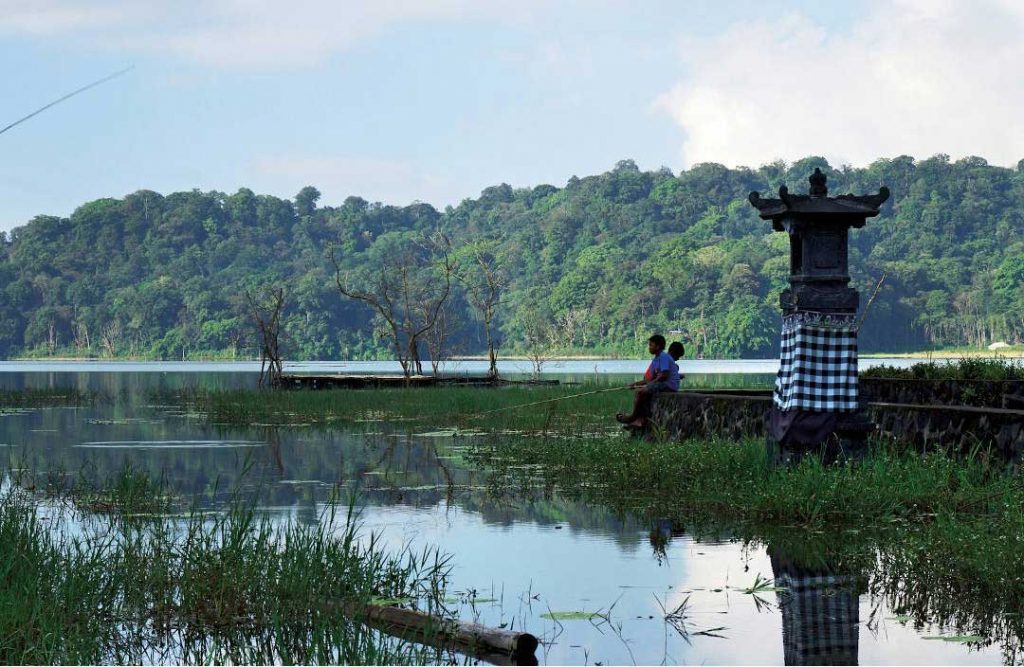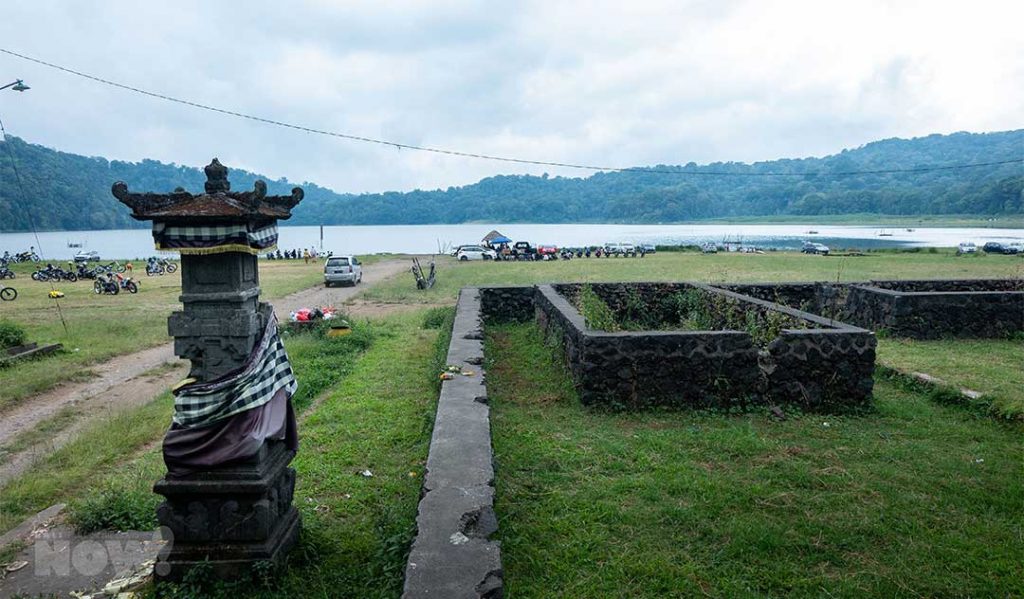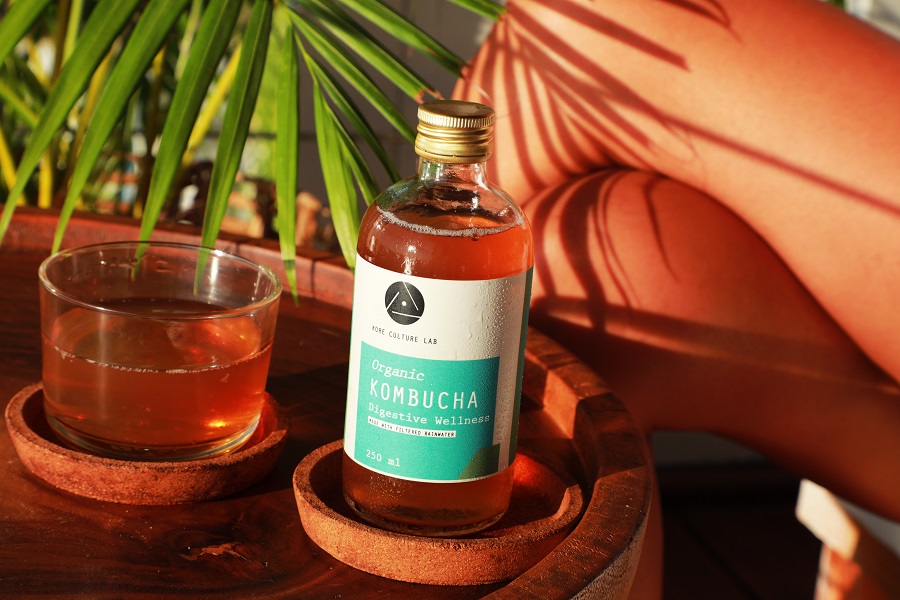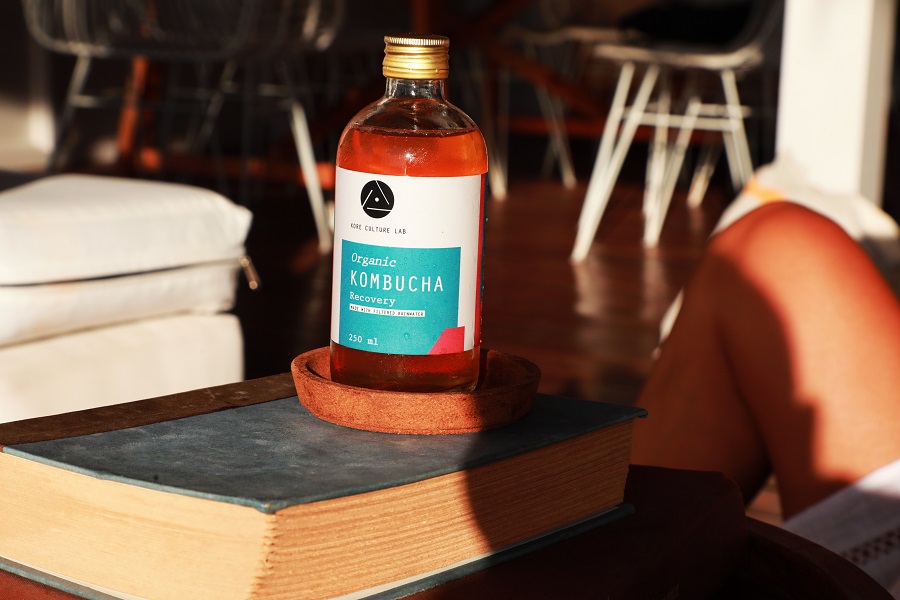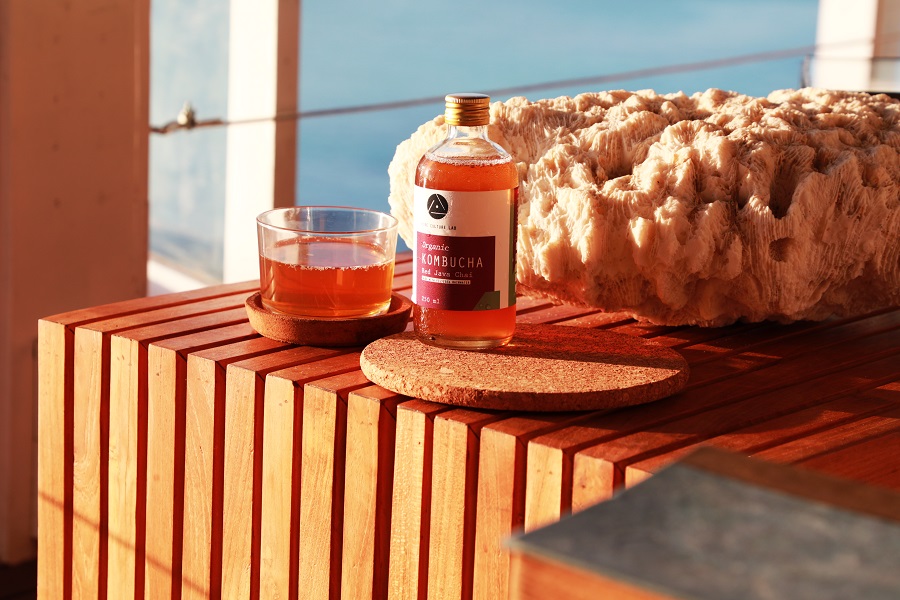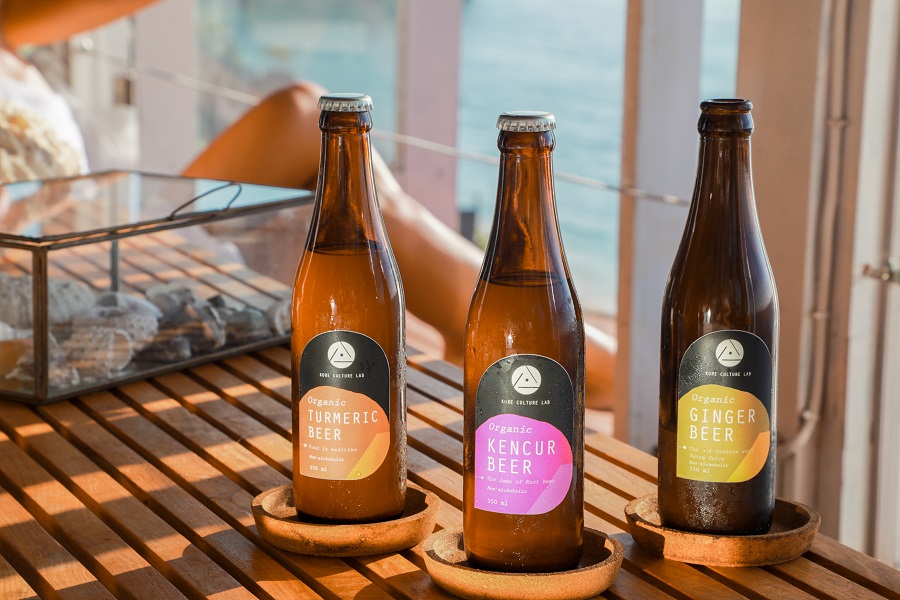Bali is drying up. Over 60% of Bali’s watershed is dry. This is a story about how rainwater harvesting might just be the solution Bali needs to solve its water crisis, and how one food and beverage company aims to not only raise awareness on the island’s environmental challenges but also be part of this solution.
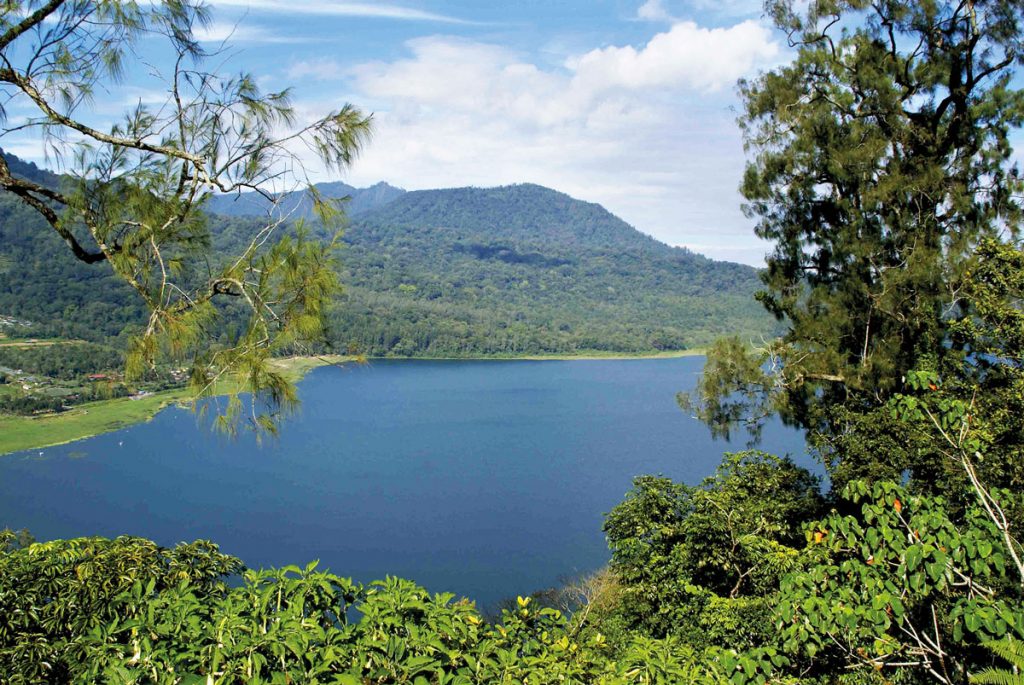
As one of the most fabled tropical destinations in the world, Bali has attracted millions of global travellers every year. However, behind this idyllic façade of pristine beaches, rich culture and lifestyle destinations lies a major problem that threatens the future of the island: water scarcity. With delayed monsoon rains and the ensuing urban development on the island, Bali is running out of water.
Despite being the smallest province in Indonesia, Bali is the country’s largest tourist destination. In 2019, during pre-pandemic Bali, a total of almost 6.3 million foreign tourists visited the island, whose resident population is only an estimated 4.3 million in 2020. As the island’s main economic sector, tourism has improved Bali economically and socially, contributing to around 60-70% of Bali’s economy. However, with its growing population and development, Bali’s resources are not meeting the swiftly increasing needs of its inhabitants.
Since the ninth century, the Balinese people have shared water resources through “subak”, an irrigation system that redirects water from the channels to the rice fields and back. The subak is not merely implemented to water crops but is also a manifestation of the Tri Hita Karana, the Balinese Hindu philosophy of harmony between God, people and nature.
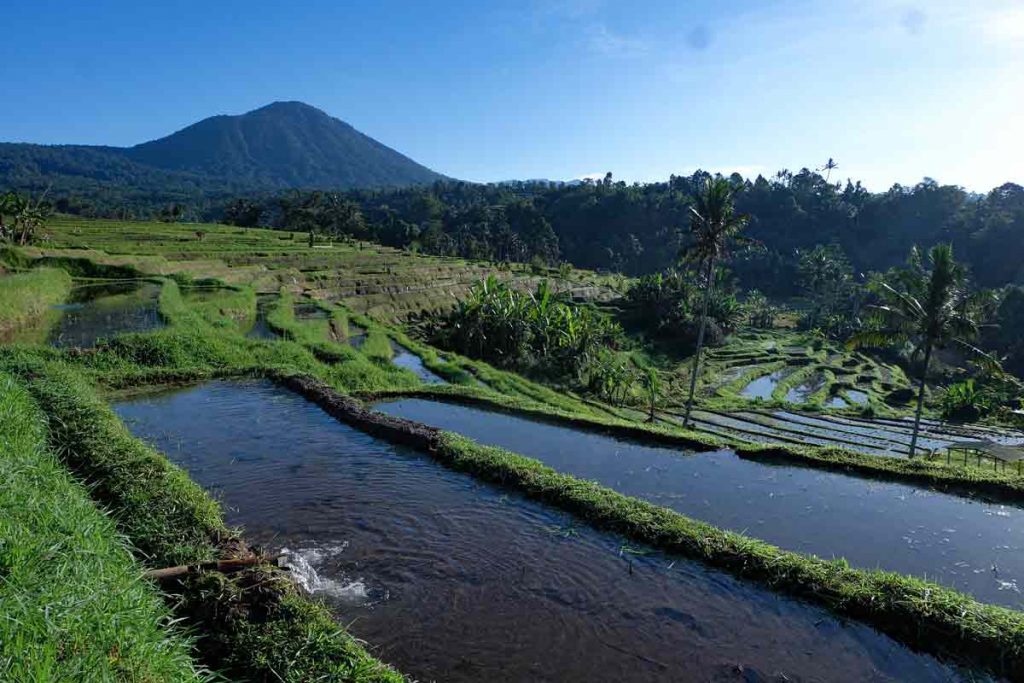
However, the system has been disturbed in recent years due to the divergence of water to densely populated areas such as the south, as well as hotels that accommodate the millions of domestic and international tourists that visit annually overexploiting groundwater resources.
Thus, the island is experiencing the combined effects of a lack of sanitised water, a falling water table, salt-water intrusion, decreasing river and lake water, and deteriorating water quality. These problems are caused by several factors, including the developing tourism industry, a lack of water infrastructure system, environmental change and water sanitation.
So, what is the solution to this water crisis? The water crisis affects everyone on the island, so those in a position of power, from the government to the countless number of stakeholders, must come together and form a mutual agreement that will fulfil the sustainability strategies. When stakeholders have a strong relationship with one another, it will benefit their individual needs while working towards a shared goal.
One of the primary reasons there hasn’t been a grand scheme to tackle the problem is the lack of communication regarding the water crisis, which many in the tourism industry today still have no idea about. Therefore, raising awareness of the water crisis will prove to be beneficial as it will influence the tourism industry to promote the issue and kickstart CSR initiatives that the island’s inhabitants can strongly endorse.
Moreover, one technical solution to Bali’s water scarcity would be rainwater harvesting. But what is rainwater harvesting? And why? Rainwater harvesting is the collection and storage of rain, instead of letting it runoff. Rainwater is traditionally harvested via a roof-like surface, which is then diverted to some sort of storage vessel such as tank, cistern, aquifer, etc.
It is one of the easiest and oldest methods of self-supply water that can be used for many things including watering gardens, livestock, irrigation, domestic use (with proper treatment), domestic heating, long-term storage and groundwater recharge. Rainwater harvesting has many benefits because it is a relatively clean and free source of water. It provides us with total control of the water supply, which is especially great for areas with water scarcity. Additionally, rainwater harvesting is not only socially acceptable and environmentally responsible, it is self-sufficient and helps preserve water.
Rainwater harvesting is also non-chlorinated, meaning it is better for landscape plants and gardens. Other than utilising inexpensive, simple and easy to maintain technologies, rainwater harvesting is a great backup source of water, especially during emergencies.
With that being said, Bali and its residents would benefit greatly if more rainwater harvesting units were available on the island as it would provide high levels of fresh, clean rainfall throughout the island. If the volume of water catchments was increased, it would help decrease the volume of runoff that is happening in Bali. Having the rainwater harvesting units might just prove to be a massive impact on the island, as it will provide clean water to not only areas but also rural areas where its residents might’ve had to walk miles to find water.
One company is already doing this and is proving that it is a viable alternative for the island.
Understanding the importance to raise awareness and becoming part of the solution to Bali’s water scarcity, one inspiring F&B company has been implementing regenerative practices such as rainwater harvesting into their business. This is Kore Culture Lab, a brewery of probiotic-rich beverages that utilises filtered rainwater for its products.
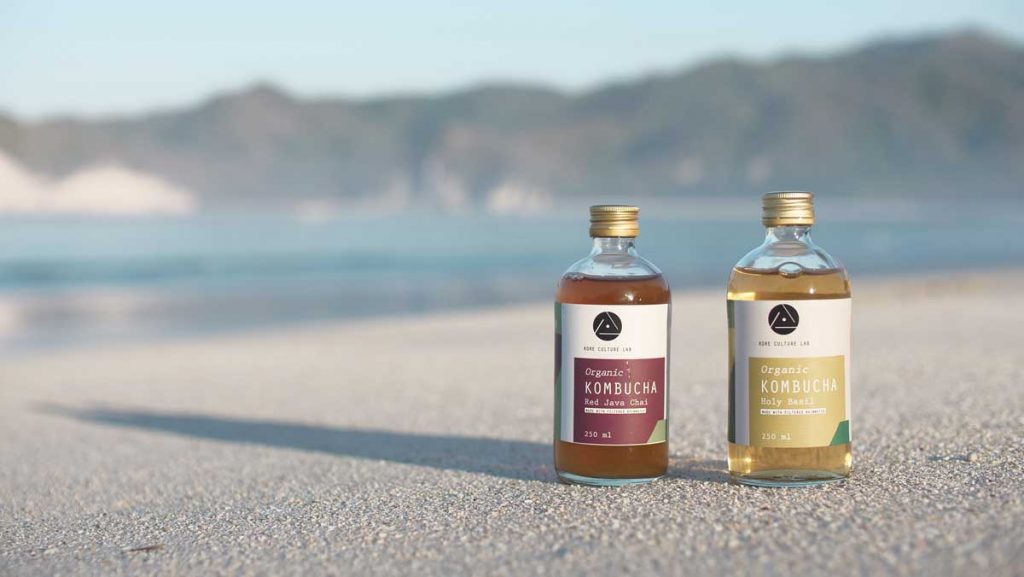
Founded by Matt Cook, it all began after his father passed away after being diagnosed with a neurodegenerative disease. During that time, Matt realised the importance of gut health in boosting immunity and preventing diseases. Understanding the health benefits of fermented food, Matt was frustrated with the myriad of sugary drinks advertised as “healthy fermented beverages” as well as brands that show no transparency with their full ingredients, so he began to experiment with fermentation recipes.
After great reviews and encouragement from his friends and family on his homemade kombucha and fermented vegetables, Matt decided to create Kore Culture Lab. Kore Culture Lab offers authentic probiotic foods that are tasty yet extremely low in sugar and filled with bioavailable nutrients and probiotic bacteria.
Wanting to implement sustainable practices and be a force of positive change for the planet, Matt wanted to raise awareness of Bali’s water crisis and take action in its solution, which is why he chose to use filtered rainwater in Kore Culture Lab’s products. The impassioned entrepreneur believes that today’s generation of consumers are more aware of the businesses they support and whether or not the product has a message, story or a cause that aligns with their values.
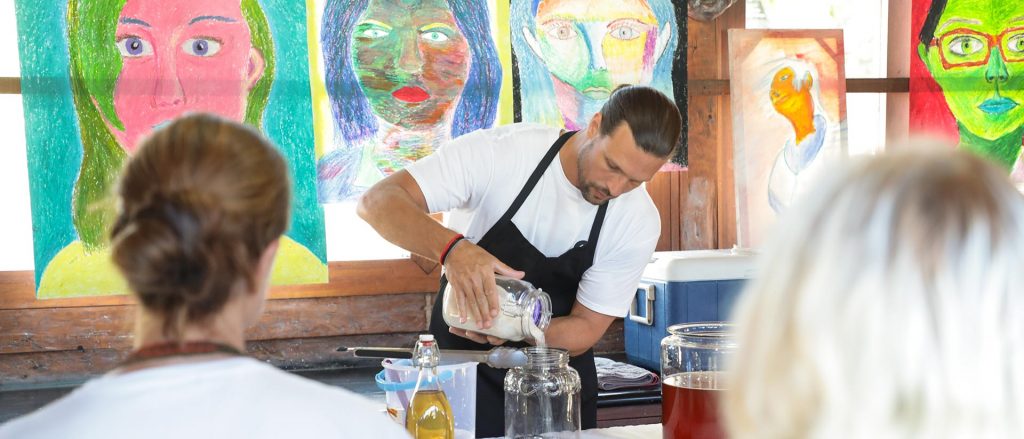
Hence, Matt’s decision to implement rainwater harvesting and use locally sourced organic ingredients to create easy, healthy and delicious products. Through these sustainable practices, it will certainly bring awareness to the environmental challenges that Bali faces and also support its solution.
But is Bali’s rainwater safe? Rainwater is captured and filtered before it touches the ground, therefore, protecting it from any harmful chemicals, heavy metals and microplastics. Kore Culture Lab also conducts regular laboratory testing to guarantee that the filtered rainwater they use in their products is safe. So, the answer to that is: YES, Bali’s rainwater is safe.
Kore Culture Lab’s products utilise natural, fresh and organic ingredients sourced from the farmers of Bali. It has no artificial sweetener, no artificial flavours, no artificial colours, no preservatives and no added sugar.
Their products include the Kombucha, Root Beer, Immunity Shot and Rain Tea. The Kombucha is available in four varieties: Red Java Chai, Digestive Wellness, Recovery and Rosellamon. The non-alcoholic Root Beer is available in three flavours: Ginger Beer, Kencur Beer and Citrus Beer.
The Kombucha Vinegar Immunity Shot is great to boost the immune system and detox the liver. They also offer an unfermented beverage with the Rain Tea, available in three flavours: Kintamani Black, Sencha and Berry Wild.
To further solidify these gains in raising awareness, PT Kore International formed their production umbrella of brands, “Bali Rainwater”, and founded Yayasan Bali Hujan Peduli to bring rainwater harvesting systems to local communities in Bali’s driest areas. In this regard, they also launched Bali Sky Still and Sparkling Filtered Rainwater earlier this year, of which 10% of revenues go to support the Yayasan Bali Hujan Peduli’s efforts to promote the adoption of rainwater harvesting in Bali.
To summarise everything, rainwater harvesting is a feasible solution that not only has an abundance of benefits but is a necessary step towards solving the water crisis in Bali. It is inspiring to see that companies like Kore Culture Lab not only produce healthy products for their consumers but also implements sustainable practices for the greater good of Bali and its people. If more businesses around the island followed suit, it will certainly be a huge step towards achieving our common goal of conserving Bali’s drying watershed.
There are more than 4,300 hotels in Bali, if these hotels practised rainwater harvesting and incorporated it in their daily operations and needs, imagine how much water we could save?
Find out more about Kore Culture Lab:
WhatsApp: wa.me/6285792852635
Instagram: @koreculturelab
Website: koreculturelab.com

